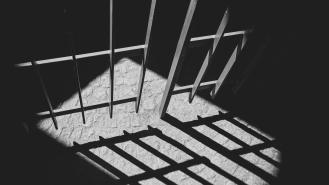The Aftermath
Despite the severe conditions at Tihar, Sobhraj managed to lead a leisurely prison life, bribing, threatening and blackmailing officials to get whatever he wanted. He enjoyed good wine, gourmet food, had access to a television, a typewriter, a fridge, a large library and even drugs, with fellow inmates apparently nicknaming him ‘Sir Sobhraj’.
Sobhraj kept prison officials in fear of him by threatening to file a petition against them in the Delhi High Court for even the smallest of issues. He banded together with fellow criminals, Vipin Jaggi and Sunil Batra, arrested for Delhi’s first big bank robbery in 1973. The group intimidated other inmates and often encouraged them to file petitions against prison officials. Sobhraj behaved as if he owned the place and had the entire run of Tihar prison. It is alleged that he could even be found on occasion having tea with prison superintendent.
In 1977 Thailand issued a 20-year arrest warrant for Sobhraj, for crimes committed on Thai soil. Leclerc maintained her innocence but was found guilty of drugging the French post-graduate students. She was later paroled and returned to Canada where she developed ovarian cancer. Vehemently declaring her innocence and loyal to Sobhraj until the end, she died in April 1984.
Sobhraj began to worry about the fact that he had been given a 12-year sentence in India, but upon his release, he still faced the 20-year Thai arrest warrant. As this would involve extradition to Thailand and almost certainly execution, Sobhraj formed new plans to escape from Tihar jail. He did this in order to be caught and sent back to jail in India, to wait for the warrant to fall under the Thailand statue of limitations and expire.
In 1986, Sobhraj’s tenth year in Tihar prison, he hatched his escape plan and had a number of people helping him. Among the 23 conspirators relating to Sobhraj‘s jailbreak were Rajinder Sethia, an infamous charlatan and Raju Bhatnagar, facing a number of charges for murder and kidnap for ransom.
The 16th March 1986 was a carefully chosen date for Sobhraj’s escape. It was a Sunday, with only a skeleton staff on duty between one and three in the afternoon. In celebration of his impending birthday, Sobhraj ordered sweets for the prison staff that guarded the gates. He had drugged the sweets and when the guards collapsed, he simply took their keys and let himself out. Superintendent B L Vij, deputy superintendent V D Pushkarna and a number of other prison officials in charge of Jail 3, Tihar, were suspended for dereliction of duty. Sobhraj had even worked his charm on a lady advocate, who agreed to join him in Goa after his escape from prison. However, the police arrested her before she could do so.
Three weeks after his escape, Sobhraj was tracked down and arrested by inspector Madhukar Zende, of the Bombay police, in Goa on 6 April 1986 and taken back to New Delhi. Jailbreak, with a potential 10-year maximum sentence, was added to the charges against Sobhraj, just as he had hoped. Maximum security was finally imposed and Sobhraj was kept handcuffed and fettered at Tihar, in an isolated cell and not allowed to mix with other inmates.
As the years passed, this tight security was somewhat lessened and Sobhraj was allowed to fraternise with others. He began befriending Western journalists who were desperate to get his story and who would visit him in jail. Sobhraj was selling his interviews to the media for as much as £2,500 and spoke openly of the murders, whilst never actually admitting to them. He maintained that his actions were purely in protest against Western imperialism in Asia.
Richard Neville from OZ magazine reported Sobhraj as saying, “If I have ever killed, or have ordered killings, then it is purely for reasons of business, just a job, like a general in the army.”
More than 20 years after he was first jailed for murder, Sobhraj was released on bail from Tihar prison on 17th February 1997, at age 52, pending a court hearing to decide what to do with him. The New Delhi chief metropolitan magistrate ordered Sobhraj’s bail conditions require him to provide two personal bonds and sureties, worth Rs20,000 and Rs10,000 respectively. He turned for help to an old cellmate, Ranbir Singh Rathore, who, along with his wife, Swaran, provided the bail.
The 20-year extradition warrant from Thailand had expired and Sobhraj was not in possession of legal travel and identity documents. This issue had to be resolved at a court hearing before he could be deported anywhere. Fearing he may go on the run again, authorities kept Sobhraj in custody at a police station during this time.
Sobhraj was represented by lawyer, Jacques Verges at the court hearing. The Indian government decided to deport Sobhraj to France, as he had always claimed French nationality, having been born in Vietnam when it was under French rule. The government also withdraw all pending cases against him, taking this decision, as they believed his further stay in India might have created law and order problems.
New Delhi additional sessions Judge Y S Jonwal finally allowed the public prosecutor to withdraw the remaining 1986 jailbreak case against Sobhraj, as he had already served more than twice the maximum 10-year sentence. The French Embassy in New Delhi issued Sobhraj with a travel permit and Indian authorities received the order of his expulsion from the country.
On 8 April 1997, two days after his 53rd birthday, Sobhraj was deported to France accompanied by two officials of the Foreigners Regional Registration Office. Sobhraj had become quite a media celebrity and the press crowded into Charles De Gaulle airport, awaiting his arrival. Sobhraj was detained at the airport for a number of hours, waiting for the media mob to leave.
Keeping in telephonic contact with his lawyer, Sobhraj settled in the suburbs of Paris to enjoy his retirement. Loving the attention and behaving like a celebrity, he hired an agent and began charging thousands for personal interviews and photographs. He entered a £7 million deal for an Indian film based on his life.
In 2003, Sobhraj surprisingly returned to Nepal, where he had committed crimes for which he had not yet been acquitted. This journey was to be his downfall, as a journalist saw him in the streets of Kathmandu on 17 September and reported it to local police. Sobhraj was arrested on 19 September 2003 at the Royal Casino in Kathmandu’s five-star Yak and Yeti Hotel.
On 20 August 2004, in the Kathmandu District Court, Sobhraj was found guilty of the 1975 murders of Laurent Carriere and Connie Bronzich and sentenced to life imprisonment. A substantial portion of the evidence in this case was provided by Interpol and Dutch investigator, Knippenberg, who had been collecting documentary evidence against Sobhraj for almost 30 years.
In late September 2004, Sobhraj’s long-suffering wife, Chantal, filed a case against the French government before the European Court of Human Rights for refusing to provide Sobhraj with any assistance. In 2005, Kathmandu’s Court of Appeals confirmed Sobhraj’s conviction. It is entirely unclear as to why Sobhraj would choose to return to Nepal when he had settled quite comfortably in France but there are some who claim it was ultimate arrogance combined with his constant need for attention that drove him to it.
Whilst latterly believed to be a psychopath, Sobhraj’s motives for murder were dissimilar from most other serial killers. He seemed not to be driven by any deep-seated violent impulses or twisted sexual fantasies, but rather by the need to find a ready source of finance for his outlandish lifestyle. In some people’s eyes, this only served to make him all the more chilling.


